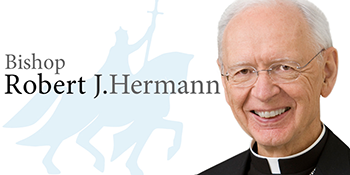 The readings for the 18th Sunday in Ordinary Time are all about what God desires to do in our lives if only we give Him permission.
The readings for the 18th Sunday in Ordinary Time are all about what God desires to do in our lives if only we give Him permission.
In the first reading the Israelites are in a tight place: between the present moment and starvation. They have lost faith in God and forgotten that God delivered them out of slavery, brought them through the Red Sea and is providing for them.
They now say: “Would that we had died at the Lord’s hand in the land of Egypt, as we sat by our fleshpots and ate our fill of bread! But you had to lead us into this desert to make the whole community die of famine!”
God wants to develop a special relationship with the Israelites. He’s looking for a people who will trust Him and be forever grateful that He has heard the cry of the poor, rescued them from slavery, and brought them into freedom.
Just when they see no way out of their plight, God intervenes and gives them bread from heaven and quail from the sky for meat.
When they finally see the manna God provided, they have to ask Moses what it is. “This is the bread that the Lord has given you to eat.” Even though they’re no longer in slavery in Egypt, they are profoundly in slavery to have complete control over their lives. They want to live life the way they want to live it. They don’t want anyone to interfere with their desires for self-mastery.
They gladly eat the food in the desert, but they don’t like the trust God calls them to develop. In Egypt, slavery didn’t require trust in God for food. All it required was hard, hard labor and always subject to servitude of the Egyptian masters.
Paul deals with this issue in the second reading. He tells the Ephesians: “You must no longer live as the Gentiles do, in the futility of their own minds. … You should put away the old self of your former way of life, corrupted through deceitful desires, and be renewed in the spirit of your minds, and put on the new self, created in God’s way in righteousness and holiness of truth.”
The bottom line is very simple: Man can’t enter into the presence of God without total transformation. That transformation can be wrought only by belief in Jesus and following His teachings. That’s why Paul tells them to “put on the new self, created in God’s way of righteousness and holiness of truth.” Christ will re-create us if only we put our trust and obedience in Him.
The Gospel presents people of the same ilk as those with whom Moses dealt. They see only what natural eyes can see. Jesus challenges them to see with the eyes of faith. He said to them: “You are looking for me not because you saw signs but because you ate the loaves and were filled.”
In other words, Jesus means: “You ate the physical food I gave you, but you did not see that as a miracle as coming from God but merely as something satisfying your stomach’s hunger. I am trying to give you spiritual food, but you are not buying it.”
He says: “Do not work for food that perishes but for the food that endures for eternal life, which the Son of Man will give you.” They respond: “What can we do to accomplish the works of God?” Jesus responds: “This is the work of God, that you believe in the one He sent.”
If they only understood what Jesus meant, their lives would have changed dramatically. He tells them that belief in Him is really the work of the Father in them. “The Father is trying to work in you by calling you to have faith in Me. This is not something you can do, but you can turn to Him and ask Him to help you in the work that He is attempting to do in you.”
Jesus then tells them: “I am the bread of life; whoever comes to me will never hunger, and whoever believes in me will never thirst.”
Just where are we in allowing the “work of the Father” to move forward in our lives?
Certainly, we can look back on many, many consolations we have received through the reception of Christ in the Eucharist.
However, just where are we now? Are there seemingly insurmountable obstacles in our lives that seem to leave us powerless? Is it that we’re trying to do a God-work with human efforts alone? Have we sat helplessly before the Holy Eucharist and simply acknowledged our need for divine intervention? Have we waited before the tabernacle in hope-filled trust that God will answer our hunger?
If we’re comfortably smug in our relationship with Jesus, then we really don’t need Him, because He can’t help us until we allow the work of the Father to move forward in our lives.
It’s such a fruitfully rich experience to sit before Christ’s real presence in the tabernacle with a problem for which we don’t have the answer. To recognize our helplessness in our own weakness is such an enriching experience in freedom. It tells us that we’re dissatisfied with the status quo, and we have room and hunger for more of Jesus in our relationships. To allow the Father to open our eyes to see what Jesus would like to do in our lives is already responding to the Father’s invitation. Jesus’ invitation to us is simple: “Come to me and see. I am always there for you!”